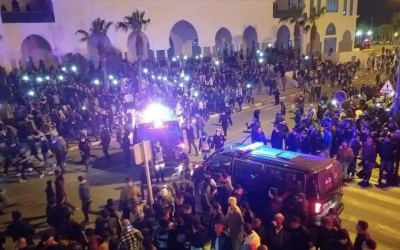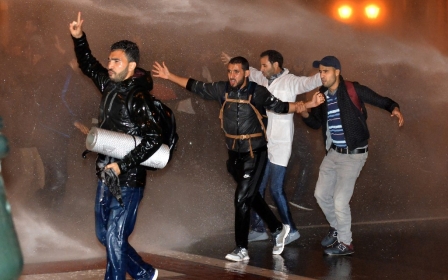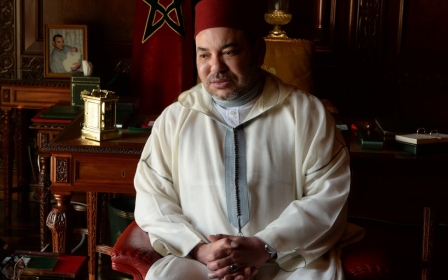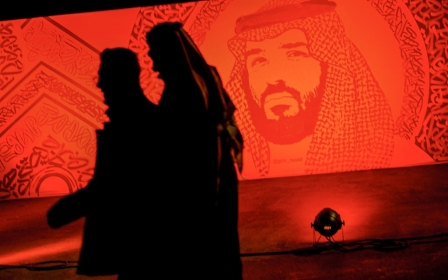Denmark: Freedom of speech doesn't apply to a Moroccan cartoonist
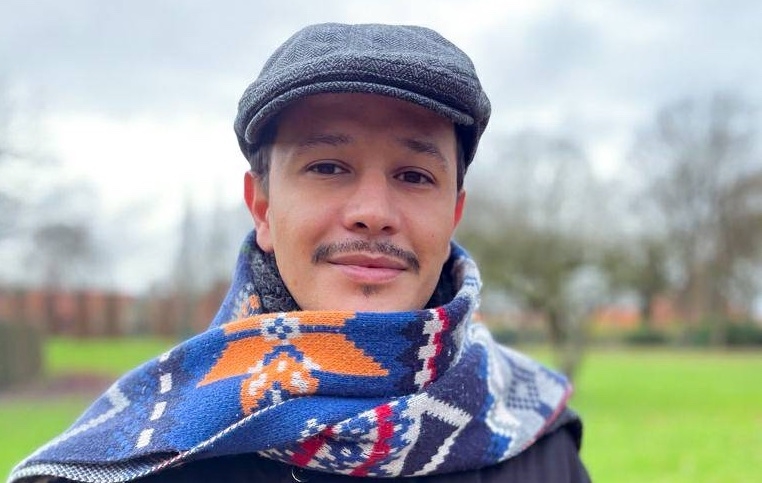
When it comes to matters of freedom of expression, which some would call the mainstay of fundamental freedoms, Denmark gets top billing - especially in Europe.
It is also the country that sparked a crisis in 2005 after the Danish newspaper Jyllands-Posten published a series of cartoons depicting the Prophet Muhammad. The cartoons sparked outrage among Muslims around the world, but Danish authorities - in the sacrosanct name of free expression - refused to intervene. In Denmark, you don’t mess with freedom of speech.
Apparently, in Denmark, the right to freedom of expression is for westerners alone - not for persecuted peoples from faraway countries
But apparently, these freedoms are relative. An asylum request from a Moroccan graphic artist and YouTuber, who has been receiving threats for years from Moroccan social media users, was recently rejected by a government that previously defended the Muhammad cartoonists tooth and nail.
His name is Abdelali Achahbi, known as Crabman - a 35-year-old Moroccan from Sale, north of Rabat, with a degree in art, computer programming and animation. He has resided in Denmark for 12 years, while his 3D animated short films on the political situation in Morocco, human rights, and the Alawite monarch have earned him a large social media following.
'Traitor' to his country
New MEE newsletter: Jerusalem Dispatch
Sign up to get the latest insights and analysis on Israel-Palestine, alongside Turkey Unpacked and other MEE newsletters
His artwork might be many things - hilarious, technically brilliant and frequently daring - but it is in no way obscene or defamatory. That said, caricaturing the king, the "Commander of the Faithful" and self-proclaimed descendant of the Prophet Muhammad, is bad business in Morocco - even when you’ve taken up residency abroad.
Hence, Achahbi has for years been the target of a smear campaign orchestrated, no doubt, by Moroccan government agencies. He is accused of being a “traitor” to his homeland, a supporter of the “Sahrawi separatists,” and even - perish the thought! - a homosexual, the ultimate insult and crime among conservative Muslim Moroccans.
But in Morocco, such forms of harassment are standard practice in dealing with dissidents. In a country such as Denmark, which prides itself on being governed by the rule of law, it ought to be an entirely different story.
The Danish government stands up for its own reporters and cartoonists in the name of free expression. The same standard should apply to foreigners who have come to Denmark to escape persecution.
But it doesn’t: Crabman was recently notified by Danish authorities that he must either leave the country or risk being forcibly expelled. The destination they have chosen for him, strangely enough, is Morocco, where he faces arrest, imprisonment and torture for having caricatured King Mohammed VI. Apparently, in Denmark, the right to freedom of expression is for westerners alone - not for persecuted peoples from faraway countries.
The grounds on which Achahbi was refused political asylum are spurious, to say the least. The Refugee Council that ordered his expulsion claimed he had failed to comply with the application procedure: his asylum request was filed with police in Herning, his town of residence, in April 2020, but the council only received it 10 months later. While that was true, a duly stamped receipt later proved it was Herning police who held up the request.
Jailed for a Facebook post
Faced with this evidence, the Refugee Council changed its tune by advancing another argument: that Achahbi’s activities on social media did not constitute a threat to him - a preposterous suggestion that would make any human rights NGO laugh, were the situation not so dire.
Apparently the Refugee Council was unaware that the Moroccan regime considers social media, and not the press - which is by and large under government control - to be the source of all its troubles. And indeed, its image has greatly deteriorated at home with the predominance of social media.
In Morocco in 2022, a Facebook post can land you in jail. Several well-known Moroccan YouTubers are currently behind bars for criticising the regime of Mohammed VI.
But what may soon become known as the “Crabman Affair” is beginning to attract attention in certain media and political circles, intrigued by the Refugee Council’s repeated rejection of the asylum seeker’s demand. A recent article in the local newspaper Herning Folkeblad reported that Achahbi was married to a woman from the region, Ane Louise Kristensen, with whom he shared a two-year-old daughter. His wife and daughter are both Danish nationals.
The same article reports that Achahbi was the owner of two successful production companies - until his work permit was revoked - and that he has not cost the Danish state a penny, remaining “self-sufficient”.
'Something went wrong'
Kathrine Olldag of the Danish Social Liberal Party calls this an “absurd situation”, adding that hundreds of binational couples who have applied for family reunification have had to leave the country for Sweden or Germany because of Denmark’s strict immigration policies.
Olldag recently met with the Moroccan-Danish couple because she believes “something went wrong”. Another Danish MP and rising star of the Social Liberal Party, Andreas Steenberg, agrees. In a public show of support, he recently put the question of the government’s “harassment” of Crabman, in violation of European asylum law, before Denmark’s unicameral parliament.
In Denmark, the life of a persecuted satirist - who needs no government aid and has a Danish wife and daughter - is worthless
On the legal front, Achahbi’s lawyer has filed a new request with the Refugee Council in hopes of reversing the decision. But it is uncertain as to whether her efforts will be enough to prevent Crabman from being expelled; according to Achahbi, Denmark’s intelligence services and their Moroccan counterparts are “on excellent terms”.
Whether that’s true or not, what appears clear is that in Denmark, the life of a persecuted satirist - who needs no government aid and has a Danish wife and daughter - is worthless.
Indeed, a Jyllands-Posten journalist informed Achahbi by email that his case “was not of interest to the editorial staff”, and ditto for DR, the Danish public service radio and television broadcasting company, which refused to report further on the subject after having uncovered the 10-month delay between Achahbi’s filed asylum request and its dispatch to Copenhagen, on the grounds that the story was “not of national relevance”.
So, when it is a question of defending the non-negotiable right of free expression - even when cartoons offend millions of Muslims - the answer in Denmark is always yes. But when it comes to saving a Moroccan artist from the persecution and wrath of an authoritarian regime, the answer is obviously no. The double-edged sword of freedom of expression can cut both ways.
The views expressed in this article belong to the author and do not necessarily reflect the editorial policy of Middle East Eye.
This article has been translated and condensed from the MEE French edition.
Middle East Eye delivers independent and unrivalled coverage and analysis of the Middle East, North Africa and beyond. To learn more about republishing this content and the associated fees, please fill out this form. More about MEE can be found here.




